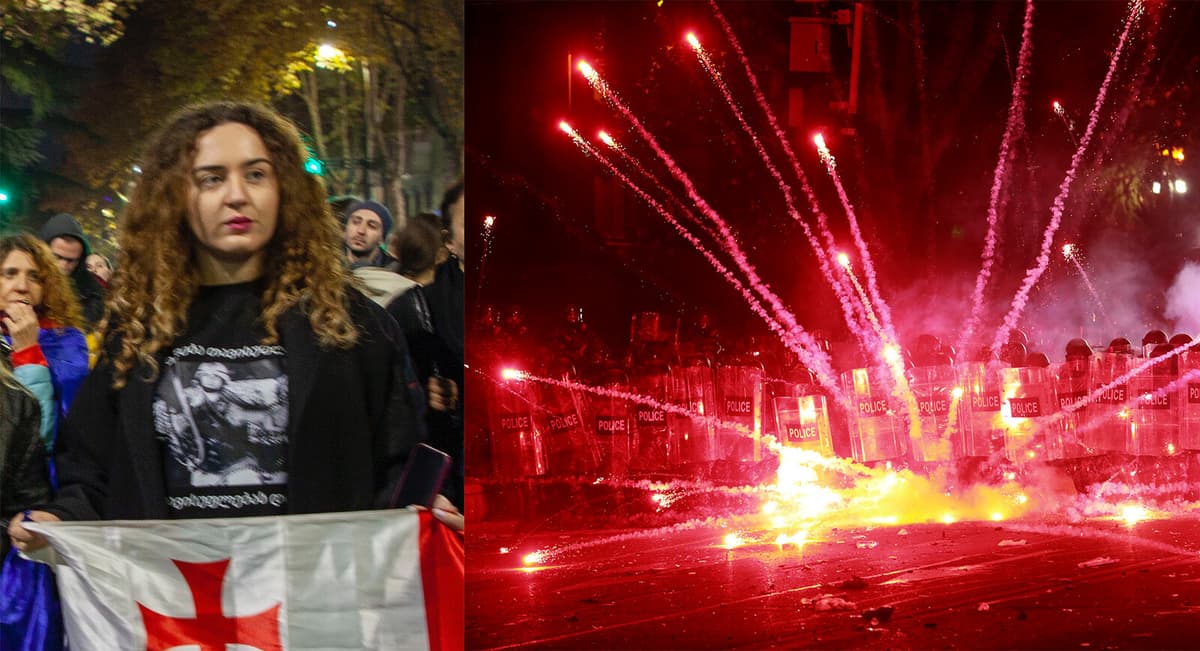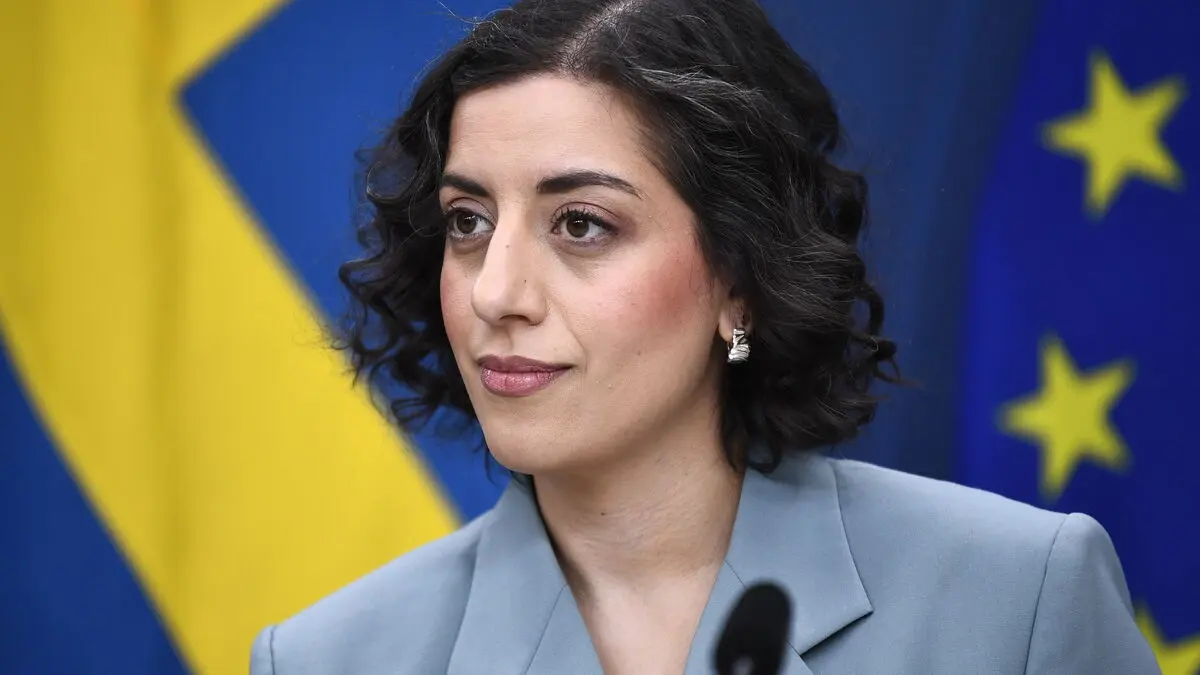The past few nights, Mariam Geguchadze has only slept for two, three hours. Then she wakes up in panic and calls her friends who are still on the streets of Tbilisi.
Considering how badly many have been beaten, I'm shocked that no one has died yet, she says to TT.
The 26-year-old is aware of the risks when she goes out, knows that the probability of her being arrested or abused is high. But not to protest is not an option.
If we don't do this, we will lose our country. This is a decisive, existential moment. We can't back down.
Friends were abused
In social media, videos are spreading that show the police's brutal response. In one clip, a man is lying in a fetal position on the sidewalk, trying to get up to a sitting position. A black-clad police officer kicks him in the back, another in the face. A third police officer takes a run-up and delivers a final kick, to the head. The man falls lifeless to the ground.
"Most of the arrested demonstrators have injuries to their heads and faces, broken facial bones and eye sockets, open wounds," wrote the pro-Western President Salomé Zourabichvili on X on Monday.
Mariam Geguchadze and Katie Abuladze know how it feels: the force of the water cannons' pressure, the tear gas that stings and itches in the eyes. They have been there every evening, among the crowds on Rustaveli Avenue, demanding that the government listens to the people and announces new elections after the strongly questioned election in October.
My friends were abused. The police take away, arrest, and abuse young people, says 30-year-old Katie Abuladze.
"Will collapse"
The ongoing protests were triggered by the increasingly Russia-friendly ruling party Georgian Dream's announcement to freeze all talks about EU membership until 2028, despite the country receiving candidate status at the end of last year.
Our people have always been part of Europe and have tried to become EU members for years, says Abuladze.
But that chance was taken away from us by the pro-Russian government.
Now, Georgians of all ages are gathering on the streets, according to Mariam Geguchadze and Katie Abuladze. Some are striking from their jobs, others are collecting equipment for the demonstrators: warm clothes, rain jackets to protect against the water cannons, ski goggles to stop the tear gas and rubber bullets.
It doesn't matter how long it takes. No chance that the people will back down now, says Geguchadze.
The illegitimate government built its election campaign on lies and dirty propaganda. Their only driving forces are money and self-interest. Because of that, the regime will collapse, says Abuladze.
According to the official result after the election in Georgia on October 26, the ruling party Georgian Dream won with nearly 54 percent of the votes.
The opposition received a total of around 38 percent, according to the electoral authority.
The result was immediately questioned by the opposition and the country's EU-friendly President Salomé Zourabichvili, who accused the government of a constitutional coup staged by Russia.
Georgian Dream has been accused in recent years of increasingly turning its back on the EU and instead looking towards Moscow, among other things through a series of Russia-inspired laws. This despite the country receiving candidate status for EU membership at the end of 2023 – and despite Russia practically occupying about a fifth of Georgia since a six-day war in 2008.
Georgian Dream was founded in 2012 by the Russia-friendly billionaire Bidzina Ivanishvili, who left power in 2012 but is still believed to be pulling the strings behind the scenes.
Last week, Prime Minister Irakli Kobachidze announced that all talks about EU membership would be frozen for four years, which triggered widespread demonstrations. Hundreds of people have been arrested and many have been injured, including many police officers.
Over the weekend, President Zourabichvili, whose power is more symbolic than real, announced that she would not resign when her term expires later in December.






